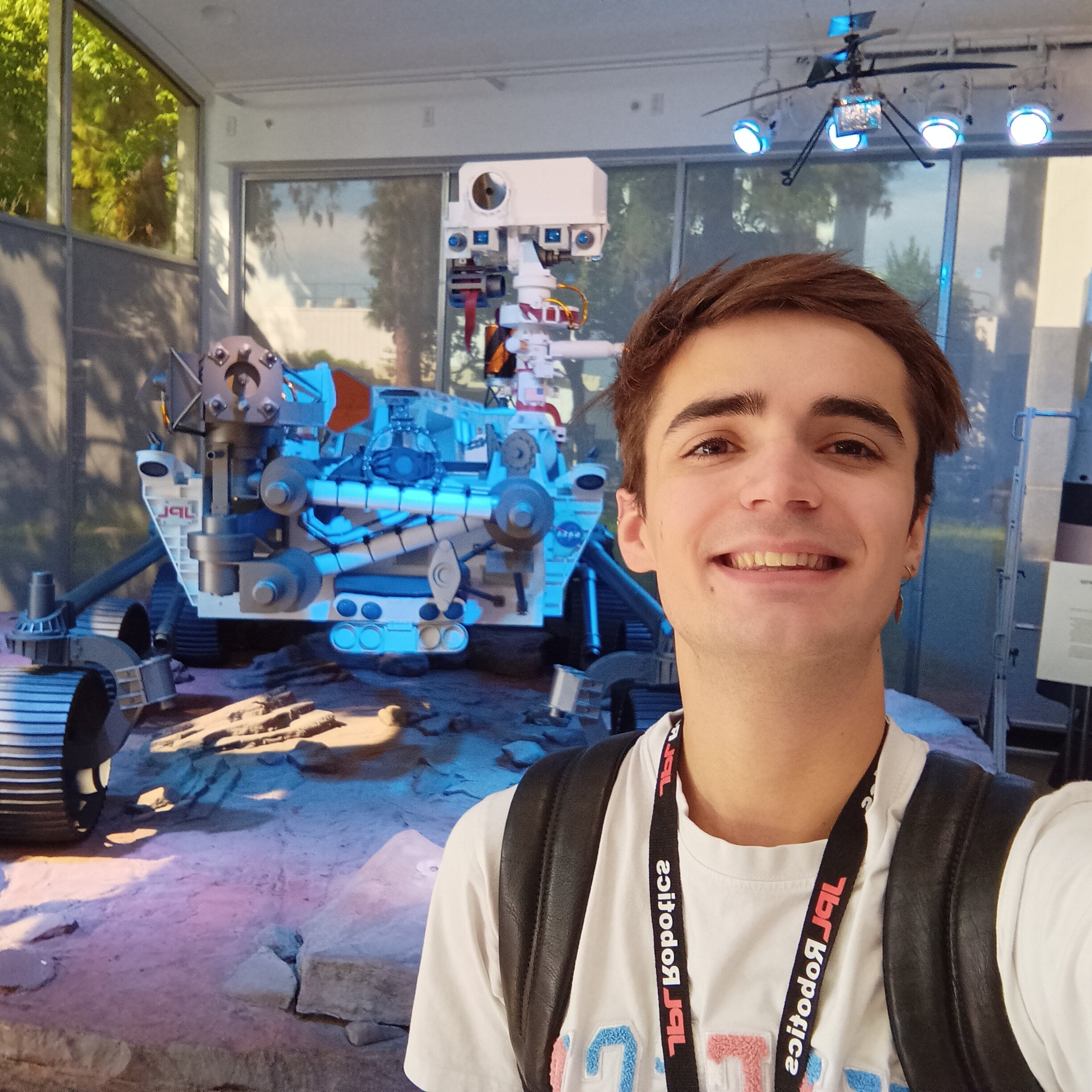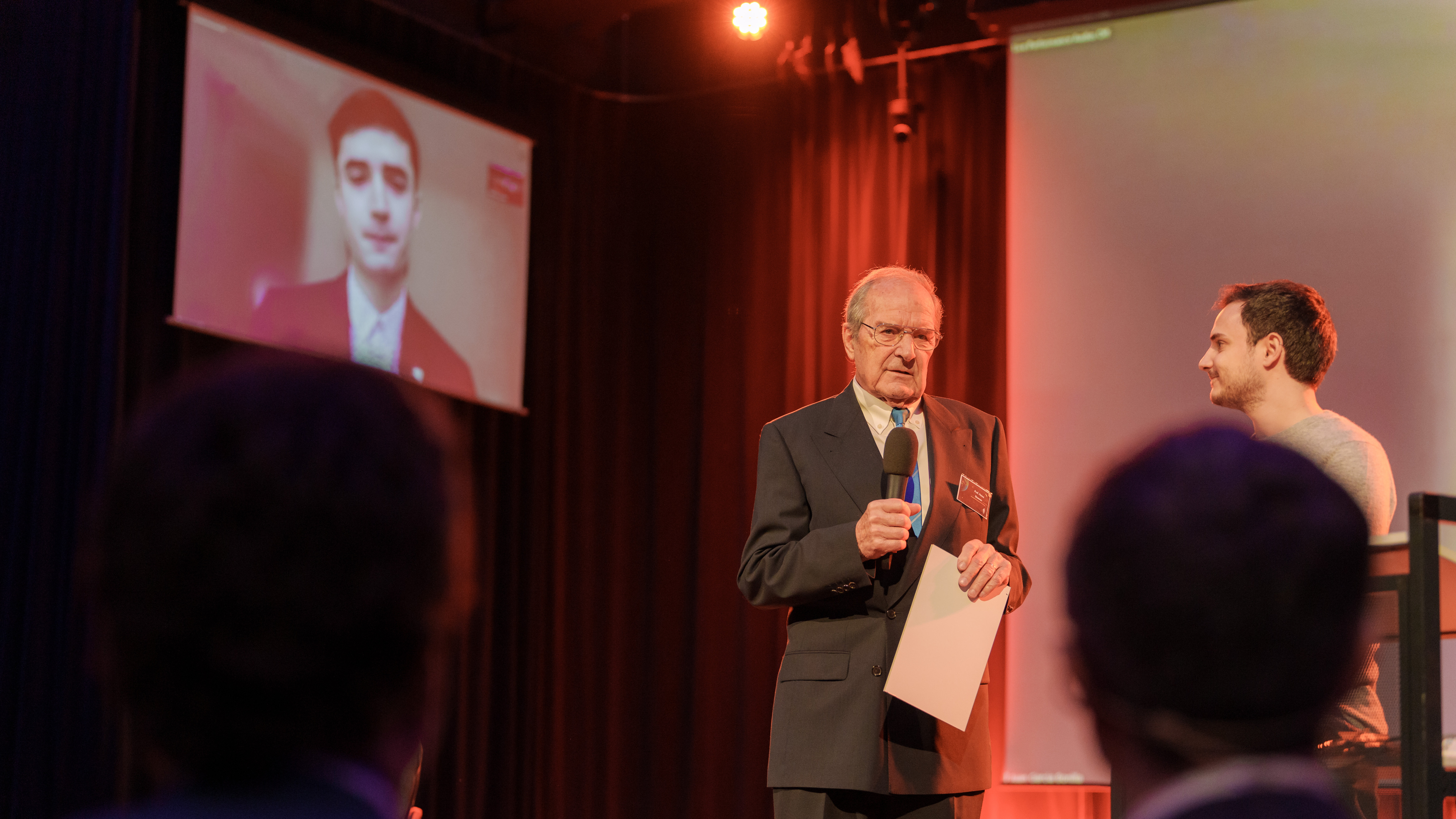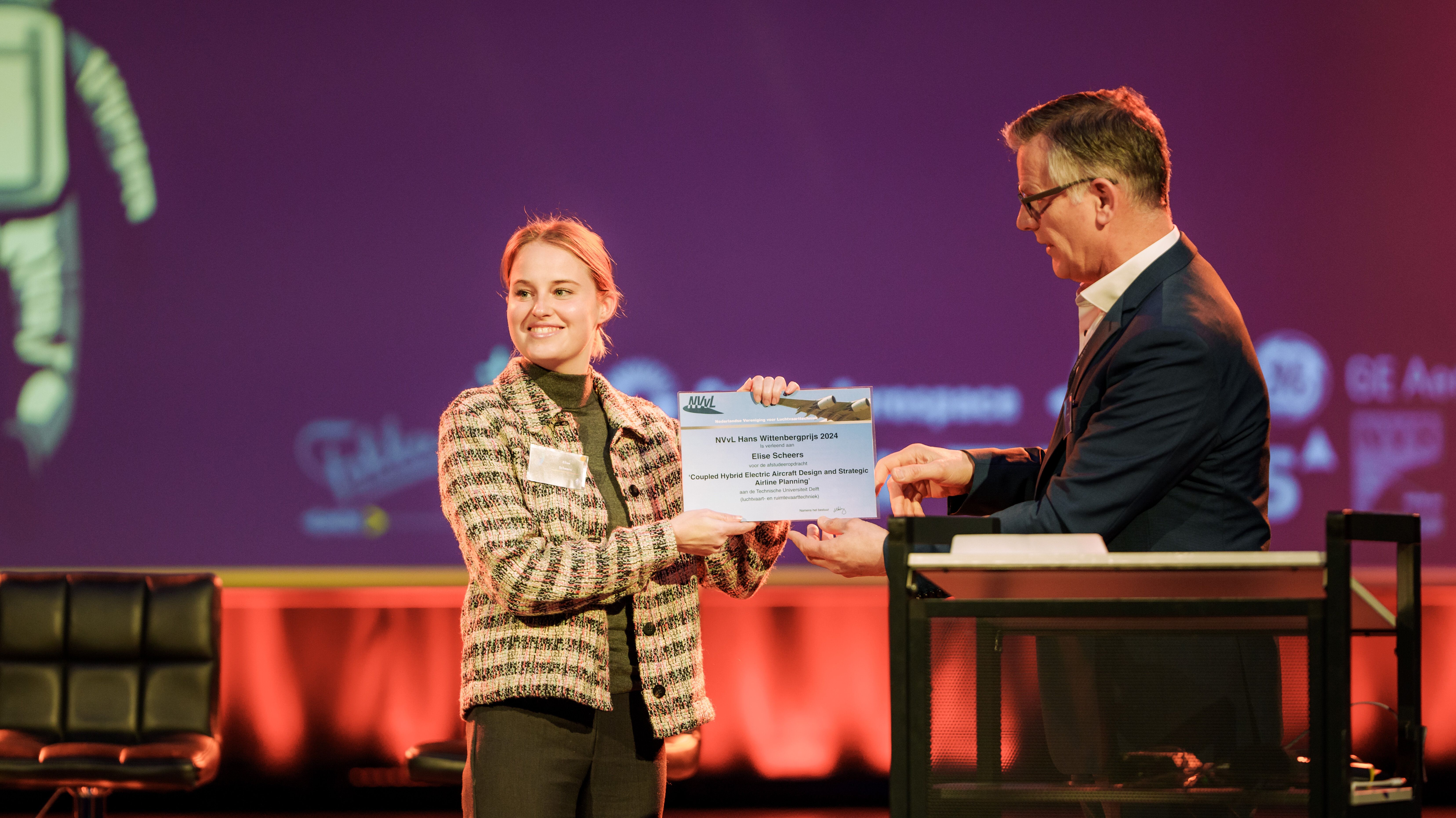Juan Garcia Bonilla and Elise Scheers recognised for outstanding master thesis
During the VSV symposium: ‘Defying the dark’ in March 2024, two students were honored with awards for their exceptional master's theses. Juan Garcia Bonilla received the Heinz Stoewer Space award 2024 for his research on solar sails, while Elise Scheers received the NVvL Hans Wittenberg Prize 2024 for her work on integrating hybrid-electric aircraft design with strategic airline planning. Both students receive a certificate and €1000 in recognition of their achievements.
The Heinz Stoewer Space Award was initiated in 2018 by Prof. Stoewer when he received the prestigious Space Engineering IEEE Simon Ramo Medal. To encourage and congratulate master's students on their research, he has decided to donate his prize money to promote the visibility of work with great social relevance. In that line, Bonilla has allocated a portion of his award funds to treat teachers and students from his former school in Spain with fun and inspiring space merchandise, as a gesture of gratitude for their support.
Juan Garcia Bonilla's thesis, titled "Uncertainty Quantification for Solar Sails in the Near-Earth Environment," earned him the Heinz Stoewer Space Award 2024. Solar sails are a novel form of space propulsion that utilises radiation pressure from the Sun. These systems are relatively new, which means there is still a lot unknown about their behaviour. Bonilla’s work aims to identify and quantify the effects of the key sources of uncertainty in Solar Sails missions around the Earth. This allows mission designers to design robust systems capable of success amidst uncertainty.
“Juan’s thesis represents one of the few studies ever to investigate the effect of dynamical uncertainties in solar sailing. Despite the complexity of the topic, Juan delved into it in a completely autonomous manner, employing novel methods far beyond the level of an MSc student. The results he found allowed for a significant enhancement of our understanding of solar sailing around the Earth, to the extent that they were used to support the design of NASA’s upcoming ACS3 solar-sail mission”. – Ir. Livio Carzana (Supervisor)
“The main challenge, for me, was that I had to learn a lot of statistics. Before coming to Delft, I wouldn't have said that I liked this branch of mathematics. However, a compelling class on Monte Carlo methods taught by Prof. L.E. Meester inspired this thesis and the methods employed. I had to learn a lot of statistics, which I ended up enjoying”. - Juan Garcia Bonilla, MSc
Bonilla's findings could directly support mission designers, particularly for the Advanced Composite Solar Sail System (ACS3) mission that was used as the main case study for the research. He also demonstrated some uncertainty propagation methods that are applicable to the wider astrodynamics community, some of which he is using in his current job as a simulation software developer. Bonilla works at the Jet Propulsion Laboratory (JPL), a research center managed by Caltech and funded by NASA, where he develops digital twins for future robotics space missions.
The opportunity to work at NASA for the scientific exploration of space is a dream come true. While I may consider returning to Europe, or try to become a professor in the future, I envision myself in California for the foreseeable future.
Juan Garcia Bonilla
Elise Scheers received the Hans Wittenberg Prize 2024 for her thesis titled: "Coupled Hybrid Electric Aircraft Design and Strategic Airline Planning". Her research focuses on integrating hybrid-electric aircraft design with strategic airline planning, aiming to develop a methodology for optimizing a hybrid-electric aircraft fleet's design while considering its impact on airline operations and network emissions.
“Elise has managed to successfully couple the disciplines of conceptual aircraft design and strategic airline planning, for hybrid-electric aircraft. Her work directly contributed to a conference paper that won two best-paper awards!” – Dr. Maurice Hoogreef (supervisor)
“The greatest challenge for me arose from integrating my background in flight performance, which primarily focused on aircraft design and optimization, with a fleet-and-network model from an operational standpoint. This was a novel endeavour for me”. – Elise Scheers MSc
Scheers currently works as a Research and Development Modelling and Simulation Engineer at the Netherlands Aerospace Center (NLR), where she focuses on modelling conceptual aircraft designs with alternative, more sustainable powertrain systems. She investigates the potentials for more sustainable aviation by assessing the performance and feasibility of these innovative technologies.
The award provides valuable recognition, enhancing my involvement and collaboration within the aerospace community. My aspiration is to continue contributing to disruptive technologies in the aerospace industry. I am really excited to see the possibilities that these innovations hold and hope to see them become reality in the future.
Elise Scheers
The NVvL Hans Wittenberg Prize is awarded to the best aviation graduation report from Delft University of Technology, InHolland University of Applied Sciences, Amsterdam University of Applied Sciences or the Netherlands Defense Academy. Named after Hans Wittenberg, who passed away in 2003 and was professor at TU Delft from 1961-1991 and board member of the NNvL from 1959 to 1975, the prize honours outstanding achievements in aviation research by students.



